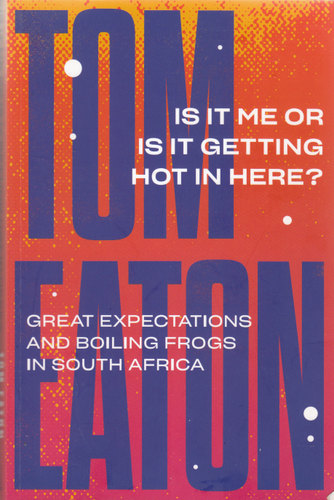
published by Pan MacMillan.
Another week, another book about the chaotic, cataclysmic Donald Trump presidency and the tumultuous fallout from it. The author of this one has probably jumped the gun in rushing to print, since his analysis focuses on the investigation into January 6th investigation whose findings have yet to be published, but it obviously felt it was important to get in early with his take on the proceedings.
As is now common knowledge, the 2020 United States presidential election held on November 3rd, saw the former Democratic vice-president Joe Biden defeat the incumbent president Donald Trump with Biden receiving more than 81 million votes, the most votes ever cast in a US presidential election. Unable to accept the reality of his defeat the soon-to-be ex-president would go on to insist the election results had been rigged although he had next to no proof to back his claims up. It didn’t matter. The doubts he cultivated ultimately led to a rampage inside the US Capitol by an angry mob of pro-Trump supporters, as well as giving birth to the Stop the Steal movement.
Undoubtedly, one of the low-water marks in recent American history, the attempted coup rocked the very foundations on which American democracy was built. It also led to a great deal of soul-searching and heated debate. As a former Republican congressman, as well as the senior technical advisor to the House select committee tasked with investigating the attack, Denver Riggelman, has some claim to know of what he speaks when it comes to the subject. He had access to much of the correspondence and documentation which passed between the various parties and was privy to a lot of privileged information. As such, his book is full of revealing insights and sheds a great deal of light on precisely what happened during those fateful few days. What becomes plain from reading it is that the insurrection was not a spontaneous act nor an isolated one but was part of a deliberate campaign aimed at keeping Trump in office. It is also hard to ignore that much of the culpability lies with Trump himself.
Equally disturbing is the fact that the effort to overturn the result of the election involved officials from all levels of government (including the military – Riggelman claims that at least one hundred of the rioters who stormed into the building that day had military experience), as well as many members of the Republican Party.
In addition to showing how Trump deluded the American people, and probably himself, Riggelman’s book is also a part memoir. By his admission, he grew up in the conservative edge of the Bible Belt “among the true believers” and it took many years to shake off the yoke religion had placed on his worldview. This gives him an insider’s take on how the far right and extremist groups like QAnon operate. Fed a combustible brew of fire and brimstone Biblical tub-thumping, biased TV and, more recently, the sort of delusional mob group-think that characterises the darker recesses of the internet it has led to a conspiratorial mindset which has, in turn, now seeped into the mainstream.
Frighteningly, there is every likelihood that in the future the system could produce more tenants in the White House just like Trump: shallow, dishonest, opportunistic, vicious and at times almost comically incompetent.
There are lessons to be learnt from all of this…

published by Bantam
There is something enjoyably familiar about sitting down with another book featuring Lee Child’s iconic hero, Jack Reacher. It is like being reacquainted with an old friend after a gap in time. One of crime fiction’s more engaging creations, the latest book featuring the laconic drifter differs from all the previous ones in that it has been co-written with his younger brother Andrew Child to whom Lee intends to hand over the reins of the franchise.
Not that any difference in style is immediately apparent. No Plan B begins in a predictable fashion with Reacher turning up in yet another remote, dusty, fly-blown mid-American town only to find himself once more at the centre of all the action. In this case, a young woman appears to throw herself under an approaching us. Naturally, all is not as it seems with the sharp-eyed Reacher, alone among the various on-lookers, noticing what everybody else has failed to see – the woman was deliberately pushed by a man in a hood. The police don’t buy his version of events, the death is ruled a suicide and the case is closed. For an avenging angel like Reacher, who sees it as his mission to battle injustice, this obviously goes against the grain and immediately decides to carry out his own investigation. The deeper he digs, the more he realises this wasn’t just a random act of violence but is part of a much larger and more sinister conspiracy that has its centre in a supposedly model prison in a small Mississippi town. Once they get wind of the fact Reacher is hot on their trail, the conspirators do their best to stop him from reaching his destination but they fail to factor in his unique talents or his relentless determination.
In many ways, No Plan B is vintage Lee Child. The theme is tackled cleverly with well-concealed sub-plots and several strong set-piece action sequences. If there is a slight difference in the form it lies in the dialogue. When it comes to cynical, snappy one-liners and put-downs – usually delivered as – Reacher despatches, in suitably violent fashion, yet another villain – Child is normally a reliable performer but here the writing seems oddly underpowered with few of the memorable quips that have proved such a feature of his best books in the series.

